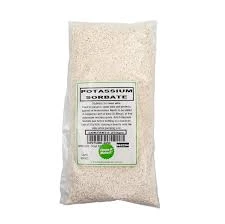
high phosphorus fertilizer
High Phosphorus Fertilizer Boosting Plant Growth and Soil Health
Phosphorus is one of the essential macronutrients that play a pivotal role in plant development. It is a key component in the formation of DNA, RNA, and ATP (adenosine triphosphate), which are vital for energy transfer and genetic functions within plants. High phosphorus fertilizers, designed to supply this critical nutrient, can significantly enhance plant growth, crop yields, and overall soil health.
The demand for phosphorus-rich fertilizers has increased, especially in modern agriculture, where the need for higher productivity is paramount. High phosphorus fertilizers typically come in various forms, including rock phosphate, superphosphate, and monoammonium phosphate (MAP). These fertilizers can provide plants with a readily available source of phosphorus, ensuring that they have the nutrients necessary for vigorous growth during critical stages, such as root development, flowering, and fruiting.
One of the primary benefits of using high phosphorus fertilizers is their ability to promote strong root development. Healthy roots are fundamental to a plant's ability to absorb water and nutrients efficiently. With an abundance of phosphorus, plants can establish deeper and more extensive root systems, which help them withstand drought and compete more effectively with other plants for resources. This is particularly important in regions where water supply is limited, as well-developed roots can access moisture from deeper soil layers.
high phosphorus fertilizer

Moreover, high phosphorus fertilizers can enhance flowering and fruit production. Phosphorus encourages the formation of flowers, which are crucial for reproduction in flowering plants. A sufficient supply of phosphorus leads to more blooms, which in turn can result in higher yields of fruit and seeds. This aspect is especially beneficial for farmers aiming to maximize their harvests and ensure food security.
However, it is crucial to apply high phosphorus fertilizers judiciously. Over-application can lead to nutrient runoff, which may pollute water bodies and cause environmental issues like algal blooms. To mitigate these risks, farmers should conduct soil tests to determine the existing phosphorus levels and only apply fertilizers as needed. Additionally, incorporating phosphorus through slow-release formulations or using organic sources, such as composted plant matter or animal manure, can provide a more sustainable approach to nutrient management.
Another consideration is the long-term impact of high phosphorus use on soil health. While these fertilizers can boost immediate plant growth, the buildup of phosphorus in the soil can lead to imbalances in nutrient availability. Therefore, rotating crops and using cover crops can help maintain soil fertility and prevent nutrient depletion.
In conclusion, high phosphorus fertilizers can be a powerful tool in enhancing plant growth and agricultural productivity. However, their application must be managed carefully to avoid environmental harm and ensure sustainable farming practices. By understanding the role of phosphorus in plant health and incorporating responsible fertilization strategies, farmers can achieve optimal growth while protecting vital ecosystems. With careful management, we can harness the benefits of high phosphorus fertilizers to foster a thriving agricultural landscape for generations to come.
-
nitrile-rubber-honoring-strict-production-standardsNewsAug.22,2025
-
aspartame-ingredients-honoring-food-safety-valuesNewsAug.22,2025
-
fertilizer-for-balanced-plant-nutritionNewsAug.22,2025
-
cyanide-gold-processing-with-high-purity-additivesNewsAug.22,2025
-
formic-acid-in-textile-dyeing-applicationsNewsAug.22,2025
-
aluminum-hydroxide-gel-in-skincare-productsNewsAug.22,2025
-
Regulatory Compliance for Global Mining Chemicals UseNewsAug.12,2025
Hebei Tenger Chemical Technology Co., Ltd. focuses on the chemical industry and is committed to the export service of chemical raw materials.
-

view more DiethanolisopropanolamineIn the ever-growing field of chemical solutions, diethanolisopropanolamine (DEIPA) stands out as a versatile and important compound. Due to its unique chemical structure and properties, DEIPA is of interest to various industries including construction, personal care, and agriculture. -

view more TriisopropanolamineTriisopropanolamine (TIPA) alkanol amine substance, is a kind of alcohol amine compound with amino and alcohol hydroxyl, and because of its molecules contains both amino and hydroxyl. -

view more Tetramethyl Thiuram DisulfideTetramethyl thiuram disulfide, also known as TMTD, is a white to light-yellow powder with a distinct sulfur-like odor. It is soluble in organic solvents such as benzene, acetone, and ethyl acetate, making it highly versatile for use in different formulations. TMTD is known for its excellent vulcanization acceleration properties, which makes it a key ingredient in the production of rubber products. Additionally, it acts as an effective fungicide and bactericide, making it valuable in agricultural applications. Its high purity and stability ensure consistent performance, making it a preferred choice for manufacturers across various industries.





